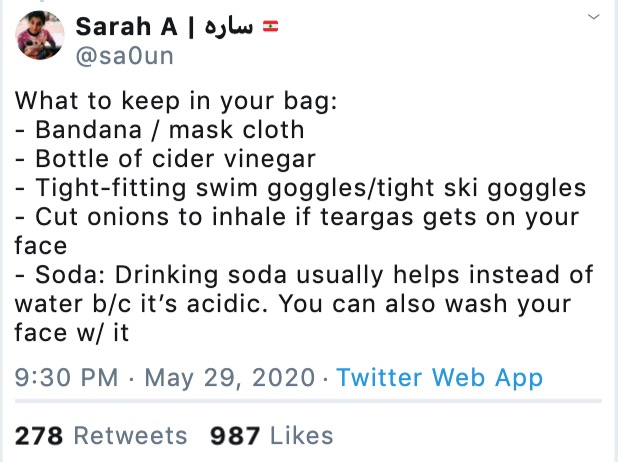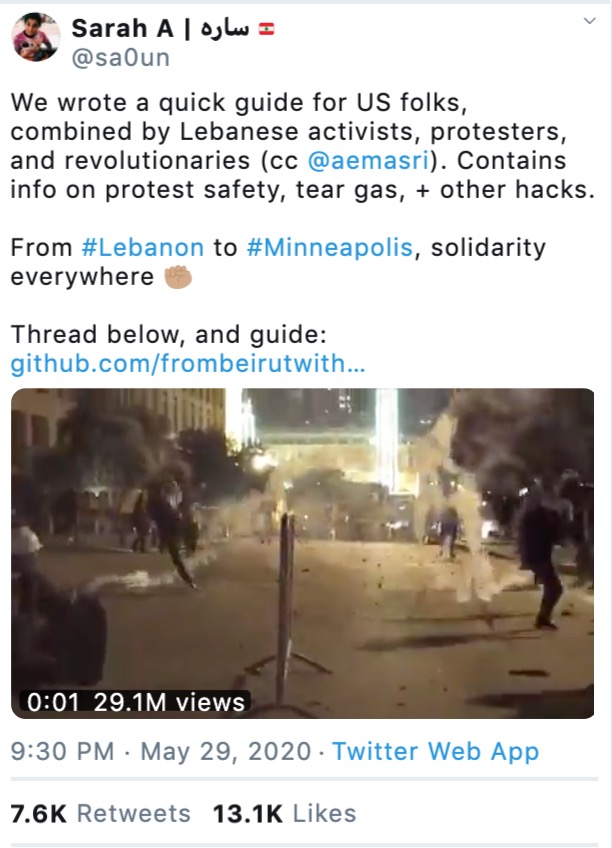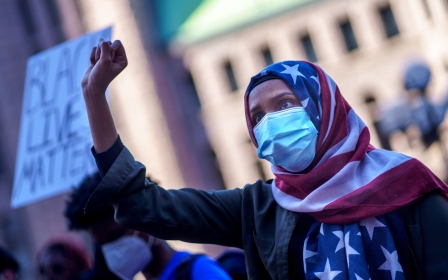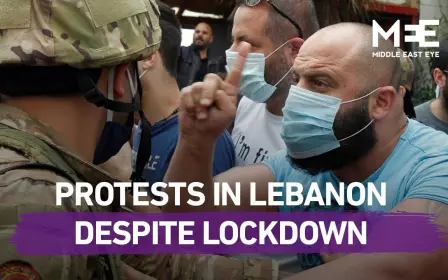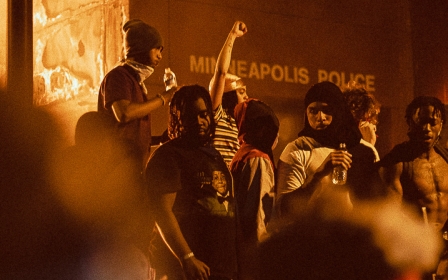#BlackLivesMatter: Lebanon activists share protest tips with US demonstrators
Lebanese activists have taken to social media in the past week to share advice on how to stay safe while demonstrating and how to protect themselves against police brutality.
Protests have erupted across the US since an unarmed African-American man, George Floyd, was killed by a police officer in Minneapolis on 25 May.
Online, people have drawn parallels between state repression of civil protests across the Middle East and that which is taking place in the US now.
Information shared by Lebanese activists includes advice on what to wear, what to keep in your bag, what to do if you’re hit with tear gas or pepper spray, and what to do if you get arrested.
In a guide published earlier this week, information is also given on what to do in the event of a media blackout, filming police abuse and how to stay safe online while sharing material.
New MEE newsletter: Jerusalem Dispatch
Sign up to get the latest insights and analysis on Israel-Palestine, alongside Turkey Unpacked and other MEE newsletters
In solidarity with protesters in Minneapolis and other American cities, Lebanese activists put together this document "as a guide for escalating protests and documenting police abuse”, the guide states.
“We recognise that our experiences and lived realities are different, but in the same way that we’ve found solidarity with Hong Kong and Chile protesters, we wanted to extend ours to others.”
In October of last year, protests erupted in Lebanon denouncing government corruption and mismanagement amid dire economic conditions. While demonstrations died down earlier this year due to the coronavirus pandemic, protests broke out once again in spite of the lockdown over a collapsing currency, increased poverty and unemployment and government shortcomings.
Lebanese forces have suppressed demonstration, notably by firing tear gas and rubber-coated bullets into crowds, resulting in the death of 26-year-old Fawaz al-Samman on 28 April.
Last year, the United Nations called for an investigation into the “excessive” use of force used against Lebanese protesters in a violent crackdown.
Lebanese social media users have also been using the hashtag #امريكا_تنتفض (America rises), similar to the hashtag ‘Lebanon rises’ that has been used to describe the protests since October.
The Black Lives Matter movement has garnered support from across the Middle East. The national committee for the pro-Palestinian Boycott, Divestment, and Sanctions movement (BDS) voiced its support for the movement in a statement released on Sunday.
“We call on the Palestine solidarity movement in the US and elsewhere to stand with the Movement for Black lives and other Black-led organisations in their righteous struggle for justice,” wrote the committee.
The BDS movement is openly inspired by the campaign that brought down South Africa's apartheid regime. The BDS committee also drew parallels between the struggle of Palestinians who are resisting Israeli occupation, and Black Americans, who are fighting for justice in the US.
"To our Black brothers and sisters, your resilience in the face of brutal dehumanisation is a source of inspiration to our own struggle against Israel's regime of occupation, settler-colonialism and apartheid," the committee said.
Middle East Eye delivers independent and unrivalled coverage and analysis of the Middle East, North Africa and beyond. To learn more about republishing this content and the associated fees, please fill out this form. More about MEE can be found here.


